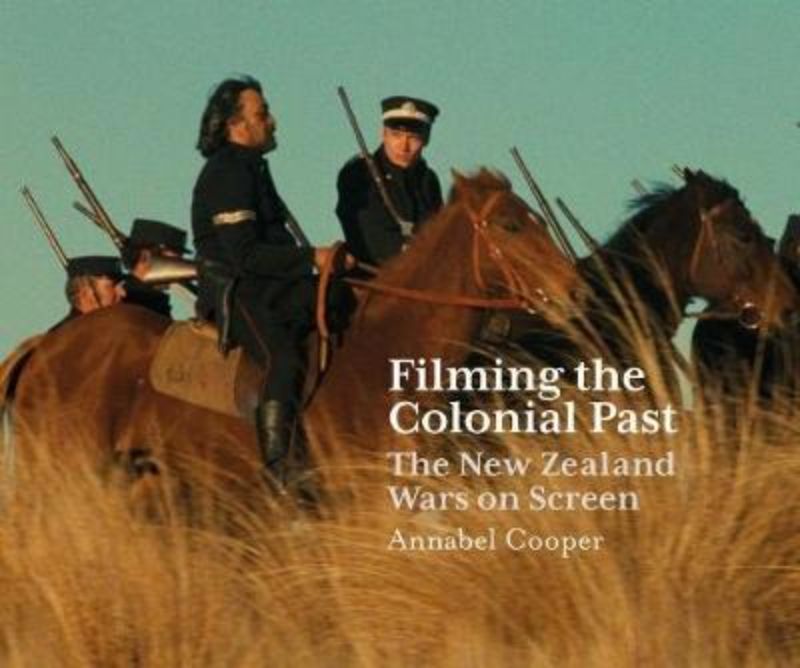SKU:
PR622870
Filming the Colonial Past
$49.95
Unit price
/
Unavailable
Discover the captivating narrative of New Zealand's past with 'Filming the Colonial Past' by Annabel Cooper. This insightful paperback, measuring 240 x 200 mm and spanning 304 pages, dives deep into the impact of the New Zealand Wars on the nation’s identity. Over the past 90 years, filmmakers have intricately woven these historical events into their works, providing a complex tapestry of storytelling that is both engaging and educational. From the silent films of Rudall Hayward to contemporary documentaries, Cooper examines the evolving representations of M?ori and P?keh? narratives in cinema. This unique book not only highlights the technological advancements from silent film to digital media but also showcases the collaborative efforts between filmmakers and M?ori communities. By exploring the cultural shifts that have occurred over decades, 'Filming the Colonial Past' offers valuable insights into race, nationhood, and creative expression. Embrace this opportunity to understand New Zealand's colonial history through the lens of its filmmakers, and ponder how these narratives continue to shape today’s cultural discourse.
Author: Annabel Cooper Publisher: Otago University Press
Bind: paperback
Dimensions: 240 x 200 mm
Pages: 304
The New Zealand Wars were defining events in the nation’s history. Filming the Colonial Past, an engaging new book from Annabel Cooper, tells a story of filmmakers’ fascination with these conflicts over the past 90 years. From silent screen to smartphone, and from P?keh? adventurers to young M?ori songwriters, filmmakers have made and remade the stories of this most troubling past. When Rudall Hayward went to Rotorua, Whakat?ne and Te Awamutu to make his two versions of Rewi’s Last Stand (1925, 1940) and The Te Kooti Trail (1927), he quickly found that the tangata whenua he relied on for making his films would help to shape the stories. By the time of the renewed interest in the New Zealand Wars in the 1970s and early 80s, thinking about race, nation and empire was undergoing a sea-change. The makers of television drama (including The Governor) and independent film (Geoff Murphy’s Utu) set out actively to engage with M?ori advisers and performers. In the late 1980s and 90s, screen industry deregulation brought a new set of challenges. Filming the Colonial Past shows how documentaries - notably the New Zealand Wars series of 1998 - and feature films - Vincent Ward’s River Queen and Rain of the Children - negotiated these hurdles. Meanwhile, M?ori working on P?keh?-led productions honed their skills. Today, the growth of M?ori creative control, enabled by the diminishing cost of digital media and the expansion of platforms, signals a new era. From these sources come documentaries from M?ori perspectives and new ways of exploring the past, from music videos to online histories. Each of these productions is a snapshot of a complex cultural moment. In examining this history, Annabel Cooper illuminates a fascinating path of cultural change through successive generations of filmmakers.
Author: Annabel Cooper Publisher: Otago University Press
Bind: paperback
Dimensions: 240 x 200 mm
Pages: 304
The New Zealand Wars were defining events in the nation’s history. Filming the Colonial Past, an engaging new book from Annabel Cooper, tells a story of filmmakers’ fascination with these conflicts over the past 90 years. From silent screen to smartphone, and from P?keh? adventurers to young M?ori songwriters, filmmakers have made and remade the stories of this most troubling past. When Rudall Hayward went to Rotorua, Whakat?ne and Te Awamutu to make his two versions of Rewi’s Last Stand (1925, 1940) and The Te Kooti Trail (1927), he quickly found that the tangata whenua he relied on for making his films would help to shape the stories. By the time of the renewed interest in the New Zealand Wars in the 1970s and early 80s, thinking about race, nation and empire was undergoing a sea-change. The makers of television drama (including The Governor) and independent film (Geoff Murphy’s Utu) set out actively to engage with M?ori advisers and performers. In the late 1980s and 90s, screen industry deregulation brought a new set of challenges. Filming the Colonial Past shows how documentaries - notably the New Zealand Wars series of 1998 - and feature films - Vincent Ward’s River Queen and Rain of the Children - negotiated these hurdles. Meanwhile, M?ori working on P?keh?-led productions honed their skills. Today, the growth of M?ori creative control, enabled by the diminishing cost of digital media and the expansion of platforms, signals a new era. From these sources come documentaries from M?ori perspectives and new ways of exploring the past, from music videos to online histories. Each of these productions is a snapshot of a complex cultural moment. In examining this history, Annabel Cooper illuminates a fascinating path of cultural change through successive generations of filmmakers.
Delivery Information
Delivery Information
All of our products are stocked in New Zealand, and shipped from our Auckland warehouse, this means no unexpected import fees or taxes.
Payment & Security
Payment methods
Your payment information is processed securely. We do not store credit card details nor have access to your credit card information.


